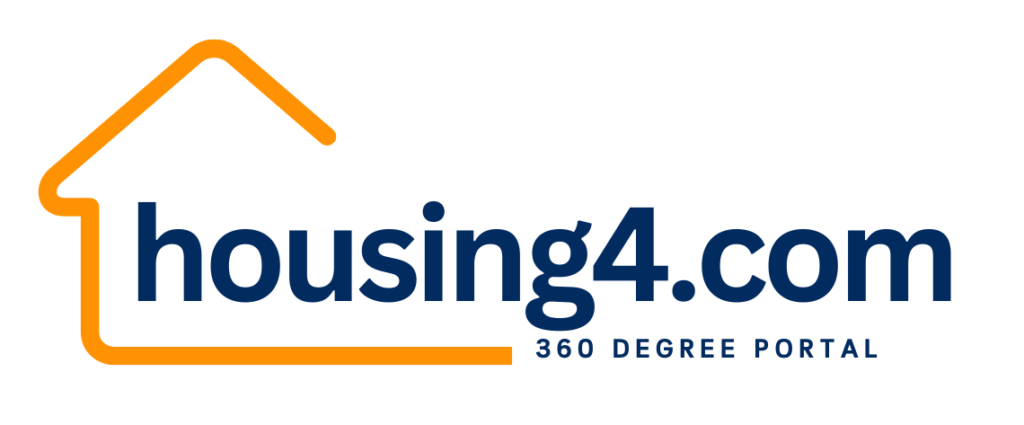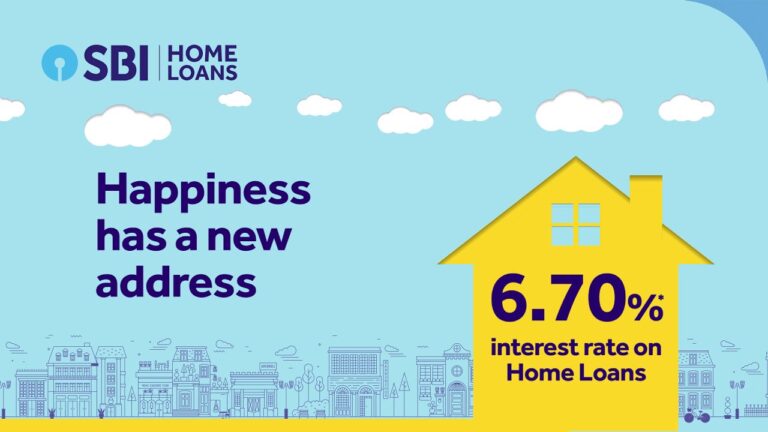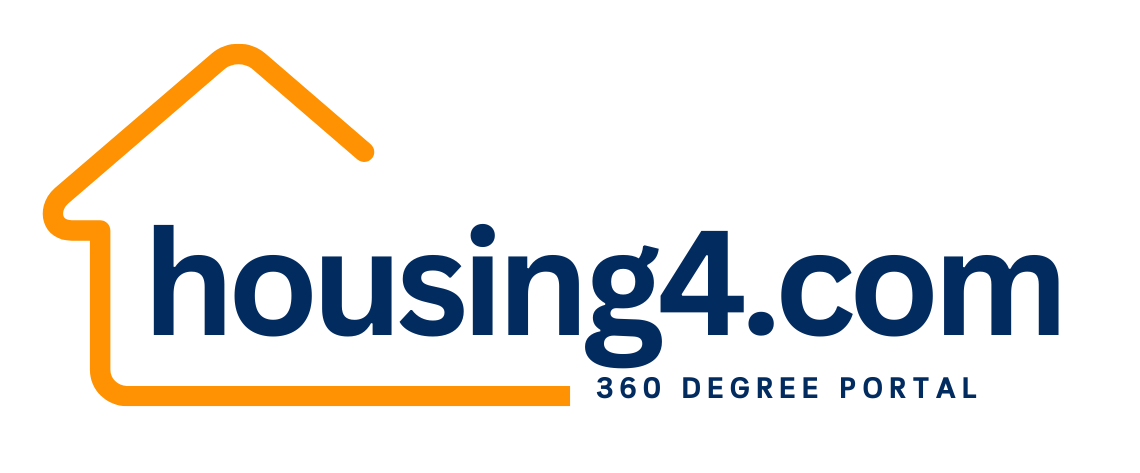
Home Loan
There are two types of property that you can buy- ready-to-move and under-construction. In both cases, loan agreement and loan disbursal stage, which are the final step, varies slightly. We’ll talk about it when we come to it. In the first stage, if you are not buying the property with 100% cash, you will require a home loan. So, finalise your property and get set for loan shopping.
Once you have finalised the property, homebuyers need to fill a loan application. Homebuyers should enquire about various offers, home loan interest rates, documents required at this stage. At this stage, you can also negotiate the processing fee with the bank.
You can start a loan inquiry. For this, you should start comparing interest rates online. This is the easiest way to understand the bank that will provide you the best and lowest home loan interest rate. You can also find all the details on the dedicated home loan page on Housing.com. Post this, you can directly generate an inquiry with the bank either by approaching the nearest bank branch or using the bank’s website.
During the inquiry, you can negotiate for the best available rates. Many homebuyers do not know that the home loan interest rate is negotiable. On the basis of your good credit score and income, banks can give you a good interest rate as well. So be aware and ask for it at this stage before it’s too late.
At this stage, you should also know that an additional expenditure also comes in the form of processing fee which can be anywhere up to 1% of your loan amount. This is also negotiable and most banks will agree for anything between 0.25-0.5% of the loan amount as processing fee.
You will also have to pay a fee for due diligence that the bank will do for you. It may happen that banks lower the processing fee but ask you for a higher charge for due diligence. It is important that you clarify this early on, to avoid spending more than what your budget permits.
The next step is related to documents. Salaried and self-employed borrowers need to provide separate documents to the bank so that the bank can assess the financial health of the homebuyer. You can refer to the list below. Some of the common documents included are as follows. You can keep these ready whenever you proceed to apply for a home loan. Remember that you should pay the processing fee only to the bank that you feel is giving the best interest rate.
List of documents common for both salaried and self-employed individuals:
- Loan Application form (completely filled)
- Passport size photographs
- Identity Proof Documents Such as PAN Card, Driving License, Passport, Voter ID Card, etc.
- Residence Proof such as electricity, water or telephone bill, ration card or any other government-issued ID proof that contains your residential address.
- Copy of bank account statement/passbook entries for the past 6 months
- Signature Identification proof from current bankers
- Statement of Personal Assets and Liabilities
List of documents that are different for salaried and self-employed individuals. This may change from time to time or depending on the bank.
| Salaried Individuals | Self-Employed Individuals |
|---|---|
| Original Salary Certificate from Employer/Last 3 months’ salary slips | Acknowledged copies of Income tax returns/assessment orders for the previous 3 months |
| TDS Certificate of Form 16 or Copy of Income Tax returns for the last 2 fiscals | Photocopies of challans as evidence of advance income tax payments |
| Proof of job stability from the current employer | Proof of business continuity |
| In case the salaried employee has changed jobs in the last 1 year, copies of the offer and joining letter of the new company need to be submitted. |
Banks will not give you a home loan without assessing your financial background, your repaying capacity, the legality of the property, and other details based on their field investigation. This is the next step where the bank does due diligence.
Your bank statements, savings, transactions, investments, business activity, credit and repayments, bank balance, cheque bounces – all these are studied by the bank. Now suppose that your cheques have bounced or been returned in the past- this can lead to ineligibility to get a home loan. The bank also studies your liabilities and loans.
After this, the bank sees your net income and credit score. A score of 750 and above indicates a healthy credit score and banks are usually willing to give you a better (lower) interest rate.
Not just financial health, banks also check your personal details through a field investigation where they check your residential address and contact details. A bank representative may visit your home to confirm such details. Do note that the nature and sector of your job also impact and determines whether you are eligible for a home loan. For example, sectors where there is a risk of job loss or instability, high attrition, are often not considered good. The field representative usually determines this.
The property that you are going to buy is also checked. The property’s condition, quality, encroachments, valuation- all these aspects are checked by the bank. If the property is under construction, then the construction progress, its quality, building plan, and layout are also carefully examined. This is the technical due-diligence stage.
Next is the legal due diligence stage. Ownership and encumbrance related documents are checked. In the case of unestablished ownership or a third party’s claim on the property, banks do not approve of the home loan. This is also one of the reasons why taking a home loan is beneficial in many ways. Banks check the entire title deed, possession certificate, sale agreement, etc. It will help you make an informed decision. Even in the case of an under-construction property, banks study and examine land ownership, allotment letters, builder-buyer agreement, project approval documents, etc.
Once banks establish that the property you are interested in is sound and free of legal hassles, it does a deep-dive into your creditworthiness. For this, banks study your repayment history and check for defaults. You can even get a higher loan amount in case you have been able to maintain a good credit score, throughout.
At this stage, banks assess your EMI repayment capacity based on your income and liabilities, if any. For example, Amit has an income of Rs 50,000 per month and a car loan liability of Rs 10,000 per month. The total disposable income of Amit is Rs 40,000 per month. Banks consider it good if your EMI is not more than 50% of your disposable income. In this case, therefore, Amit can spend Rs 20,000 per maximum as EMI, and therefore, the home loan sanctioned may roughly be between Rs 20-25 lakh. It depends on different banks, how they assess and calculate your repayment capacity. In short, banks check the Loan to Value ratio and do not sanction more than 80-90 %. It also checks your income, age, company, nature of work, etc to calculate your home loan eligibility.
After various checks, the bank sends you an offer letter with the final loan amount mentioned in it. If you sign, it is considered as accepted formally. You can then sign the loan agreement. After this, the bank hands over the DD to the seller and you can take possession of the property.
The offer letter clearly mentions the sanctioned loan amount, rate of interest- whether fixed or variable. Fixed interest rates are higher than variable but even fixed is not altogether a fixed rate, these could be floating rates as well and could be fixed for a certain period. It totally depends on you whether you choose, fixed and floating rate or variable. The offer letter also mentions the tenure, number of EMIs to be paid, mode of repayment whether post-dated cheques or electronic clearing; schemes availed such as PMAY or bank offers, validity, terms, and conditions, etc. You should sign the offer letter only if you are satisfied with the offer. Do remember to check the sanctioned amount.
Pro Tip: If you can arrange some finances from friends and family, you can also ask the bank to reduce the loan amount sanctioned.
The next step is the loan agreement. All borrowers need to sign it in case of a joint home loan. If you have planned to opt for post-dated cheques as repayment option, banks collect cheques equivalent to the loan amount at this stage, for security.
In the case of an under-construction property, the process is slightly different. A tripartite agreement is signed at this stage between the bank, borrower, and builder.
The loan disbursement stage for an under-construction property is different and depends on the progress of construction. Accordingly, the bank pays the builder directly and all the original documents are collected from you by the bank.
The sale deed is signed in the case of a ready-to-move property. The day it is signed, the DD is directly handed over to the seller. Prior to this, the bank will check whether you have made any down payment and whether the sale deed has been registered at the sub-registrar’s office. Even in ready-to-move property, banks keep all the original property papers. Do keep photocopies of all the documents that you have submitted in the bank.
Home Loan Documents !
- Completed loan application
- 1 passport size photograph (including the one affixed in loan application)
- Proof of identification: Electoral ID Card / Passport / Driving License / PAN card.
- Proof of residence: Electoral ID Card / Passport / Electricity Bill / Telephone Bill.
- Proof of business address, in case of non- salaried borrowers
- Statement of bank account for the last six months
- Salary slips for last 3 months
- Bank statement for last 3 months
- Copy of identity card issued by the employer
- Form 16 or IT Returns for the last 2 years
- Photocopies of IT Returns/Assessment orders for the last 3 years
- Balance sheet and Profit and Loss A/c for the last three years (Certified true Copy attested by Chartered Accountant)
- Proof of business address
- Proof of business (Registration Certificate of establishment, Gumasta /Trade License, Sales Tax Registration etc.)
- Certificate of Practice-photocopy
- TDS Certificates (Form 16A wherever applicable)
Home Loan Eligiblity Calculations ?
Calculating your home loan eligibility is simple with this formula:
(Monthly fixed income * 50%)- other EMI payments/ EMI per lakh. This gives you the loan eligibility amount in lakh.
Note that per lakh EMI varies depending upon the tenure of repayment that you choose. You will also be provided with an EMI chart which will clearly show you your monthly repayment over the years. For example, assuming that home loan interest is at 10.5% and the amount of loan is Rs 1 lakh, then your monthly EMI is as shown here:
We’ll make it simpler for you. You can access the EMI calculator on Housing.com to arrive at the exact EMI amount you’ll be paying every month over a period of time.
Factors that determine your home loan eligibility
You would have clearly understood that your take-home salary is one of the top determinants to calculate your home loan eligibility. Let’s look at some quantitative factors too:
- Loan to value ratio
Banks generally do not grant more than 80 per cent of the value of property as loan? This is called loan to value ratio. In short, if you are interested to buy a property worth Rs 1 crore, loan sanctioned will not be more than Rs 80 lakh. So how would you pay the rest of the Rs 20 lakh? This is where downpayment comes in the picture. Down Payment means you will have to pay the remainder from your pocket!
- Loan tenure
If you are opting for a long repayment tenure, there are chances you would be better positioned to avail a home loan. When the EMI burden is spread over a long tenure, the EMI is lower. Not just the tenure of loan repayment, your age will also matter! If you are 45, your working age is merely 15 more years and therefore your repayment can only be over the next 15 years. But suppose you are 25 — you can spread your EMI burden over a longer period, that is 30 years and therefore higher chances of being eligible for a home loan.
- Interest rate
This is a top concern among all potential home buyers who are hunting for the right loans. Cheaper loans means you have better chances of being eligible for a home loan and therefore you will find many praying for a pocket-friendly interest rate!
- Other EMIs
Are you paying other EMIs such as education loan, vehicle loan. Higher EMI outflows lowers your chances of being eligible.
- Credit history
Your credit score is also important as it provides a look into your transaction and repayment history. If your credit score shows that you have defaulted, there is no chance you’ll be eligible for a loan! So keep your score healthy. A score above 700 is considered good!
- Your qualifications
Your educational qualification, work experience, growth prospects and stability are also equally important. Those who have professional degrees may be treated with better interest rates and may have a better chance at securing a home loan. Similarly if you are working in a coveted field, you stand a good chance. Besides, your employer’s reputation is also considered. Bigger companies promise lower interest rates!
- Family and work background
Can your family and background help your home loan eligibility? Banks categorise certain sectors as risky, for example the BPOs. Apart from this, jobs or sectors where layoffs and attrition is high are also not given much consideration when it comes to eligibility. But suppose your family background is impressive and your family members are professionals- these details help banks assess your repayment capacity.
- Spending habits
Do you live life king size? This may not be good news for your bank. If you are someone used to spending a lot or have many dependents on you, you are a risky customer for the bank.
- Type of property
Type of property also determines your eligibility. In case of a ready-to-move property, you may get a loan but in case of an under-construction property, loan roll out is dependent on the stage of construction. If you are looking to buy a property with a general power of attorney, bad news, because banks usually do not prefer financing such properties.
- Summing this up for you:
Main factors that determine eligibility for home loan are:
- Loan to value ratio
| Age of the Applicant | 18 to 70 years |
|---|---|
| Eligible Salary | Rs. 25,000 per month and above |
| Work Experience for Salaried | 3 years and above |
| Business Stability for Self Employed | 5 years and above |
| Minimum CIBIL Score | 650 |
| Maximum Loan on Property Value | Up to 90% |
| Maximum EMI as percent of income | 65% |
| Eligibility with Co-applicant | Up to 3 earning family members may be added to get higher loan eligibility |
How to enhance your home loan eligibility
You might have already checked whether or not you are eligible for a home loan. The good news is there are ways to enhance your eligibility. Consider these quicks tips:
- Add a Joint applicant (spouse, blood relations) to show a higher joint income, hence better chance to avail a home loan.
- Add other incomes – yearly bonus, rent from property, FD interest. Remember to show proof of these incomes as well.
- Opt for a longer repayment tenure.
- Consider paying off all the other EMIs before applying for a home loan. This will give you more disposable income.









